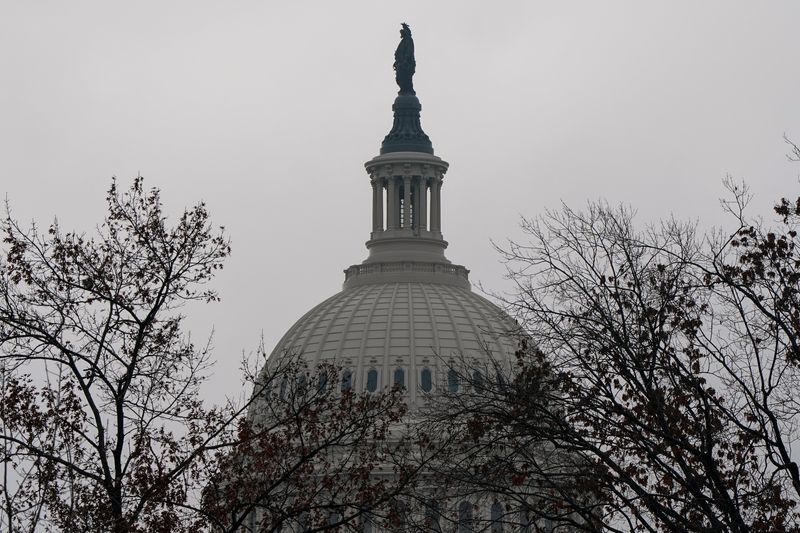By David Shepardson
WASHINGTON (Reuters) -The U.S. Senate rejected a bid on Wednesday to fast-track legislation to expand U.S. government authority to detect and destroy drones that could pose security threats over stadiums and other locations.
Congress has debated for years expanding authority amid growing safety concerns. Senator Gary Peters sought unanimous consent to approve the bill after reports of drones sighted over New Jersey raised widespread concerns. The FBI and other agencies have said many of the sightings are of airplanes or planes and do not pose safety concerns.
Senate Democratic leader Chuck Schumer said the bill "explicitly authorizes state and local authorities to conduct drone detection and helps them better coordinate with federal law enforcement agencies to keep communities safe."
Republican Senator Rand Paul blocked the request saying the bill would grant the government sweeping authority to conduct broad surveillance and Congress should not rush to legislate.
"It's about unchecked government overreach. It's about capitalizing on fear and media-driven hysteria" that could violate the civil liberties of Americans.
The White House and sports leagues since 2022 have been pushing for expanded authority to detect threatening drones, with the NFL, Major League Baseball and other leagues warning previously that without expanded authority, airports and sporting events "are at substantial risk from malicious and unauthorized (drone) operation."
The NFL said last week rogue drone flights into the restricted air space above stadiums during NFL games rose to 2,845 in 2023 from 2,537 in 2022 and NFL Commissioner Roger Goodell met with congressional leaders.
Drone flights are prohibited up to 3,000 feet (914 m) before major U.S. sporting events in a three-mile radius of stadiums.
Congress in 2018 expanded the power of the Justice Department and Homeland Security to disable or destroy threatening drones, but officials say they need new authority.

Legislation would expand federal coverage for airports and critical infrastructure like power plants, oil refineries or chemical facilities and high-risk prisoner transports. It would also allow use of expanded counter-drone authorities by state and local law enforcement.
Owners or operators of airports or critical infrastructure could also use federally vetted drone-detection capabilities.
